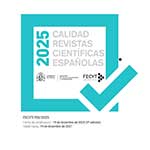The Deep Fake: The New Challenge of Generative Artificial Intelligence
Abstract
Artificial intelligence has ushered in what philosophers call the "fourth revolution", presenting mankind with multiple challenges. In fact, from a computer and legal point of view, one of the biggest problems looming on the vast horizon of new technologies concerns the Deep Fake -- and the relative difficulty of ascertaining it in the field of digital forensics. Recent studies have confirmed that such tools impact on the cognitive mechanism leads human beings to trust false data to a greater extent than "true" data. In an attempt to remedy this danger, the EU has included manipulative techniques in the catalogue of prohibited practices provided for in the AI Act, although continued technological progress calls for reflection on the relationship between law and technology, as well as on the suitability of modern legal instruments to meet the challenge of articial intelligence.
This paper aims to investigate the functioning of the generative AI of fake data, focusing on the critical issues of Deep Fake, as well as the legislative responses adopted in other legal systems.
Article download
License
In order to support the global exchange of knowledge, the journal Derecom. Derecho de la Comunicación is allowing unrestricted access to its content as from its publication in this electronic edition, and as such it is an open-access journal. The originals published in this journal are the property of the Complutense University of Madrid and any reproduction thereof in full or in part must cite the source. All content is distributed under a Creative Commons Attribution 4.0 use and distribution licence (CC BY 4.0). This circumstance must be expressly stated in these terms where necessary. You can view the summary and the complete legal text of the licence.







